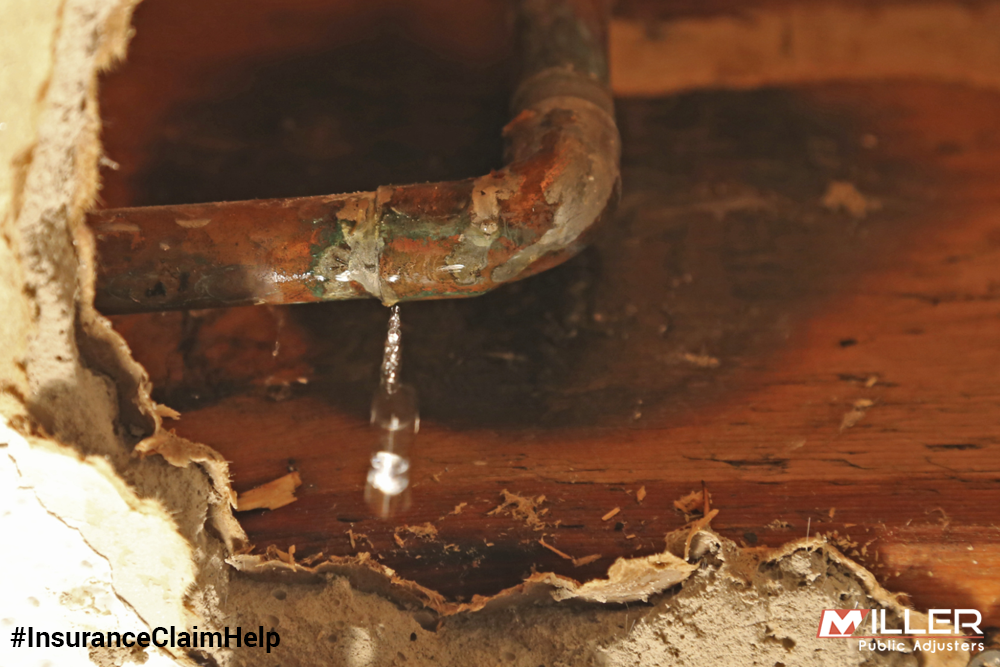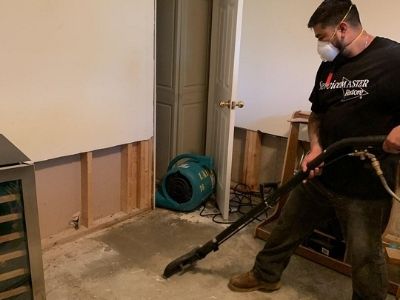Handling Flood Damage Caused by a Leaking Water Pipe - Expert Solutions
Handling Flood Damage Caused by a Leaking Water Pipe - Expert Solutions
Blog Article
Were you interested in advice on Quick Tips To Help Deal With Water Damage?

What should you do if a water pipe bursts in your house? The longer you wait, the more severe the damage that can take place to your residential property. For these factors, you need to learn just how to act in the occasion of a burst water pipe.
Shut down the Key Waterline Valve
Look for the neighborhood shut-off shutoff to transform off the water in one certain location only. If you don't know where the localized shut-off shutoff is, go for the major water line shutoff as well as transform it off. Generally, the major shutoff is found outside the residence next to the water meter.
Call Water Damages Remediation Pros for Help
After closing the water source, call the professionals for aid. This circumstance is not something you can do some DIY because the pipes needed to be fixed and there is a demand to deal with the various other damages to your residential property. If you can not cope, seek aid from a credible company providing 24/7 emergency services. With their expert help, you can avoid much larger water damage including warped walls, loosened ceramic tiles, or damaged structures. Don't take this trouble gently as well as seek professional advice for your full peace of mind as well as a qualified service.
Paper the Damage For Insurance policy
While you're waiting for the pros to get here, obtain some documents of the damages created by the wayward pipe. Do close-up shots of the harmed areas and belongings.
Recover Things That Can Be Conserved
As soon as you're done taking pictures, analyze the damaged things and also secure the most important ones from the pile. Dry them off in a dry/warm area away from the broken area and also try to maintain them as long as you can. Drag as much dampness as you can to the product so it can begin to dry out.
Beginning the Drying Process
The good news is, the water from your waterlines is already tidy so you do not have to worry regarding sewer water. The streaming water might have disturbed the dust and also particles in your carpetings and also floorboards. Blot out as much water as you can from the surfaces with old towels.
Specialists are the only individuals qualified to analyze correctly and also take care of the burs pipelines as well as succeeding damage. As constantly, pipelines do not simply suddenly burst out of heaven. They generally offer silent red flags like gurgling paint, water discolorations. Strange noises in the plumbing, caving ceiling, stuffy odor, or peeling wallpaper. Make note of these indications and also do some safety nets so you can nip any type of issues in the bud.
What should you do if a water pipeline ruptureds in your residence? For these factors, you need to learn how to act in the event of a ruptured water pipe. After shutting the water resource, call the professionals for help. With their specialist assistance, you can protect against a lot larger water damages including warped baseboards, loose floor tiles, or harmed structures. Luckily, the water from your waterlines is already clean so you do not have to worry about sewage system water.
How to Handle a Burst Pipe and Minimize Damage
Steps to Take Ahead of Time
If you own property in an area that experiences cold weather, you need to be aware of seasonal maintenance tasks that will help you protect your property as the weather changes each year. One of the most important steps is to winterize your pipes to ensure they won't freeze or burst when the temperature drops. This includes action items like insulating any exposed pipes, detaching garden hoses and covering outdoor faucets. If the weather gets cold enough, you may even consider leaving a faucet dripping or opening cabinet doors during the coldest parts of the day.
No matter how prepared you might be, accidents and emergencies still happen. You'd be wise to set up a savings account specifically for your property so you have a "rainy day" fund set aside for unexpected expenses. All homes regardless of age, location or condition will inevitably need some form of emergency repair.
Steps to Take for Frozen Pipes
A frozen pipe will not necessarily burst, so if you can catch a frozen pipe early on, you could save yourself a major headache. When your area experiences frigid temperatures, be sure to check your plumbing and keep an eye out for warning signs like faucets only releasing small amounts of water or toilets not refilling when flushed. If you do run into one of these issues, you're likely dealing with a frozen pipe.
If this happens, your first step should be to cut off the water supply to that section of the plumbing. Expanding and freezing water can quickly cause damage. Even if the water supply is shut off, you will likely still deal with some leaking from the water that defrosts after the pipe has thawed. Be prepared with a mop, bucket and/or towels to quickly soak up any excess water.
In order to thaw a frozen pipe, you can use a space heater, infrared or incandescent heat lamp, or even a hairdryer to warm up the frozen area. Heat tape is also an option and should be used according to manufacturer instructions. Do not use any sort of open flame to thaw frozen pipes, as it poses a major fire hazard and can damage your pipes further.
Steps to Take for a Burst Pipe
Water damage claims are the second most common insurance claim in the U.S. When you're dealing with a frozen pipe, the water continues to expand as it freezes, which creates pressure that can cause a pipe to burst. When this happens, the crack or leak in the pipe allows water flow from the pipe to enter your home where it shouldn't. If a pipe does burst, you need to act quickly to mitigate property damage and repair cost.
Your very first step should be to shut off your main water supply to minimize flooding typically the most expensive damage to address. Once you've shut off the water supply, make sure you identify the entire area that has been impacted by the leak. Remove as much water as possible as quickly as possible using a mop, sponges, towels or a shop vacuum or wet/dry vacuum. To prevent long-term damage due to moisture build-up, run a dehumidifier or fan in the affected area. Contact a licensed plumber to ensure the pipe is correctly repaired before running any water to that section of the home again. Burst pipes and the associated water damage are something you absolutely want to avoid as a property owner. If you've had to learn your lesson the hard way, don't let yourself get caught in a similar situation during the next spell of cold weather. The best way to deal with frozen or burst pipes is to prevent them in the first place proactive winter maintenance will save you time, money and a whole lot of stress.

Do you like reading about The Do s And Don ts After Water Damage? Post feedback down below. We'd be glad to see your opinions about this posting. Hoping that you visit us again in the near future. Do you know someone else who is interested by Do s And Don ts For Homeowners Managing With Water Damage? Take a moment to promote it. Thanks a lot for your time. Don't hesitate to come visit our blog back soon.
Prioritize your plumbing; call us. Report this page